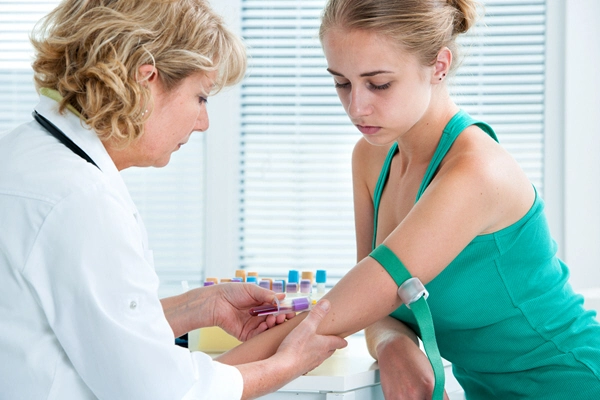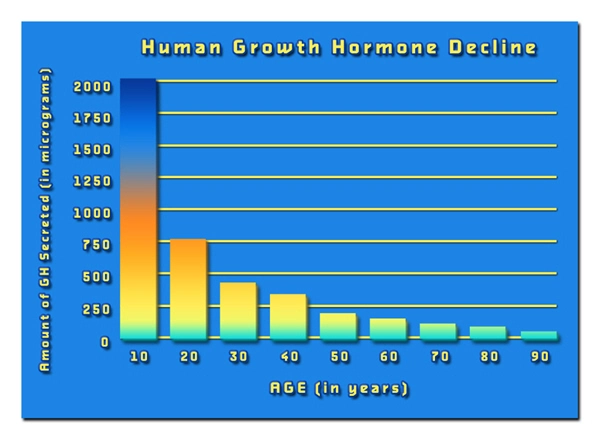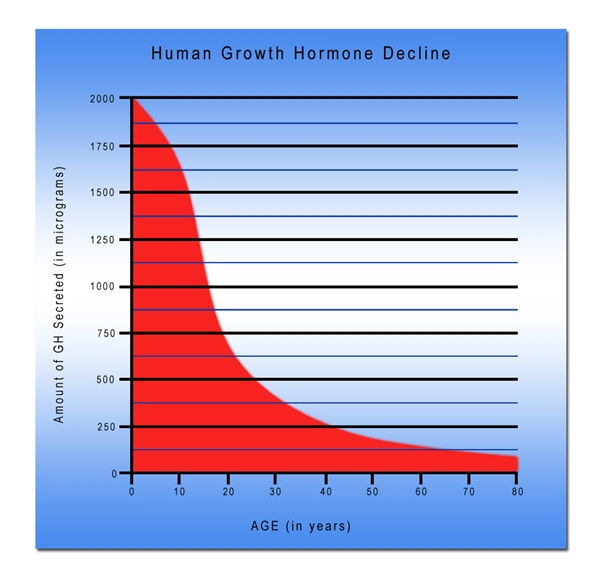Introduction
Late-onset hypogonadism (LOH), also known as age-related low testosterone, is a clinical and biochemical syndrome associated with advancing age in men. Characterized by a decline in serum testosterone levels, LOH can lead to a variety of symptoms, including reduced libido, fatigue, depression, and decreased muscle mass. While hormone replacement therapy is a common treatment, emerging research suggests that nutritional interventions may play a significant role in managing and potentially alleviating the symptoms of LOH. This article delves into the role of diet in managing LOH symptoms among American men, reviewing recent studies and their outcomes.
Understanding Late-onset Hypogonadism
Late-onset hypogonadism typically manifests in men aged 40 and older, with prevalence increasing with age. The condition is often underdiagnosed due to its gradual onset and the overlap of symptoms with normal aging. However, when identified, LOH can significantly impact quality of life. Traditional treatments focus on testosterone replacement, yet dietary modifications are gaining attention as a complementary or alternative approach.
The Role of Nutrition in LOH Management
Nutrition plays a crucial role in overall health and can influence hormone levels and function. Certain nutrients and dietary patterns have been linked to testosterone production and regulation. A balanced diet rich in specific vitamins and minerals can support hormonal health and potentially mitigate some symptoms of LOH.
Key Nutrients and Their Impact
Several nutrients have been identified as beneficial for testosterone levels and overall hormonal health. **Zinc**, for instance, is essential for testosterone production and has been shown to improve testosterone levels in zinc-deficient men. Foods rich in zinc, such as oysters, beef, and pumpkin seeds, should be considered part of a LOH management diet.
**Vitamin D** is another critical nutrient linked to testosterone levels. Studies have demonstrated a positive correlation between vitamin D supplementation and increased testosterone levels, particularly in men with vitamin D deficiency. Incorporating vitamin D-rich foods like fatty fish, fortified dairy products, and egg yolks can be beneficial.
**Omega-3 fatty acids**, found in fish oil and flaxseeds, have anti-inflammatory properties and may support testosterone production. A diet that includes these healthy fats can contribute to hormonal balance and overall well-being.
Dietary Patterns and LOH
Beyond individual nutrients, specific dietary patterns have been studied for their impact on LOH symptoms. **The Mediterranean diet**, characterized by high consumption of fruits, vegetables, whole grains, and healthy fats, has been associated with improved testosterone levels and reduced symptoms of LOH. This diet's emphasis on nutrient-dense foods and anti-inflammatory components makes it a promising approach for managing LOH.
Study Outcomes and Practical Applications
Recent studies have explored the effects of dietary interventions on LOH symptoms in American men. One notable study followed a group of men aged 50-70 with diagnosed LOH who adopted a Mediterranean diet supplemented with zinc and vitamin D. Over a six-month period, participants reported significant improvements in energy levels, mood, and libido. Additionally, follow-up blood tests showed a modest increase in testosterone levels, suggesting that dietary changes can positively influence hormonal health.
Implementing Dietary Changes
For American men looking to manage LOH symptoms through diet, practical steps can be taken to enhance nutritional intake. Consulting with a dietitian or nutritionist can help tailor dietary recommendations to individual needs and preferences. Incorporating a variety of nutrient-rich foods, maintaining a balanced diet, and possibly using supplements under medical supervision can support overall health and hormone regulation.
Conclusion
While further research is needed to fully understand the impact of nutrition on late-onset hypogonadism, current evidence suggests that dietary interventions can play a significant role in managing symptoms and improving quality of life for American men. By focusing on key nutrients and adopting healthy dietary patterns, men with LOH can take proactive steps toward better health and well-being.

- Exploring Alternative Therapies for Late-Onset Hypogonadism in Middle-Aged and Older Men [Last Updated On: February 25th, 2025] [Originally Added On: February 25th, 2025]
- Economic Impact of Late-Onset Hypogonadism on U.S. Men's Healthcare [Last Updated On: March 17th, 2025] [Originally Added On: March 17th, 2025]
- Late-Onset Hypogonadism: Impact on Muscle Mass and Management in Aging American Men [Last Updated On: March 18th, 2025] [Originally Added On: March 18th, 2025]
- Genetic Factors in Late-Onset Hypogonadism: Insights for American Males [Last Updated On: March 19th, 2025] [Originally Added On: March 19th, 2025]
- Exploring Late-Onset Hypogonadism: Current Treatments and Future Innovations [Last Updated On: March 20th, 2025] [Originally Added On: March 20th, 2025]
- Late-Onset Hypogonadism: Symptoms, Impacts, and Treatment in American Males [Last Updated On: March 20th, 2025] [Originally Added On: March 20th, 2025]
- Managing Late-Onset Hypogonadism: Symptoms, Lifestyle, and Medical Interventions for American Men [Last Updated On: March 20th, 2025] [Originally Added On: March 20th, 2025]
- Late-Onset Hypogonadism: Effects on Mood, Energy, and Management in American Men [Last Updated On: March 21st, 2025] [Originally Added On: March 21st, 2025]
- Late-Onset Hypogonadism: Understanding, Diagnosing, and Managing Low Testosterone in American Men [Last Updated On: March 21st, 2025] [Originally Added On: March 21st, 2025]
- Nutrition's Role in Managing Late-Onset Hypogonadism in American Males [Last Updated On: March 21st, 2025] [Originally Added On: March 21st, 2025]
- Late-Onset Hypogonadism: Impact on Fertility and Treatment Options for American Men [Last Updated On: March 22nd, 2025] [Originally Added On: March 22nd, 2025]
- Understanding Late-Onset Hypogonadism: Risks and Benefits of Testosterone Therapy [Last Updated On: March 22nd, 2025] [Originally Added On: March 22nd, 2025]
- Early Detection and Management of Late-Onset Hypogonadism in American Males [Last Updated On: March 22nd, 2025] [Originally Added On: March 22nd, 2025]
- Managing Late-Onset Hypogonadism in Aging American Men: Symptoms, Treatment, and Lifestyle [Last Updated On: March 22nd, 2025] [Originally Added On: March 22nd, 2025]
- Exercise as a Key Strategy for Managing Late-Onset Hypogonadism in American Males [Last Updated On: March 23rd, 2025] [Originally Added On: March 23rd, 2025]
- Late-Onset Hypogonadism: Benefits of Early Intervention in American Men [Last Updated On: March 23rd, 2025] [Originally Added On: March 23rd, 2025]
- Late-Onset Hypogonadism: Impacts on Cognitive Function and Therapeutic Approaches [Last Updated On: March 23rd, 2025] [Originally Added On: March 23rd, 2025]
- Managing Late-Onset Hypogonadism: Diagnosis, Treatment, and Lifestyle Strategies for Men Over 40 [Last Updated On: March 23rd, 2025] [Originally Added On: March 23rd, 2025]
- Exploring the Link Between Late-Onset Hypogonadism and Diabetes in American Males [Last Updated On: March 23rd, 2025] [Originally Added On: March 23rd, 2025]
- Managing Late-Onset Hypogonadism: Impacts, Diagnosis, and Treatment in American Men [Last Updated On: March 23rd, 2025] [Originally Added On: March 23rd, 2025]
- Dietary Strategies to Manage Late-Onset Hypogonadism in American Men [Last Updated On: March 23rd, 2025] [Originally Added On: March 23rd, 2025]
- Managing Late-Onset Hypogonadism: Symptoms, Treatment, and Societal Impact on American Men [Last Updated On: March 24th, 2025] [Originally Added On: March 24th, 2025]
- Emotional Journey of Late-Onset Hypogonadism in American Men: Coping and Support [Last Updated On: March 24th, 2025] [Originally Added On: March 24th, 2025]
- Managing Late-Onset Hypogonadism: Symptoms, Diagnosis, and Treatment Options for American Men [Last Updated On: March 24th, 2025] [Originally Added On: March 24th, 2025]
- Late-Onset Hypogonadism: Effects on Health and Importance of Early Intervention [Last Updated On: March 24th, 2025] [Originally Added On: March 24th, 2025]
- Late-Onset Hypogonadism: Enhancing Patient Education and Screening in the US [Last Updated On: March 24th, 2025] [Originally Added On: March 24th, 2025]
- Late-Onset Hypogonadism: Symptoms, Risks, and Management Strategies for Aging Men [Last Updated On: March 24th, 2025] [Originally Added On: March 24th, 2025]
- Late-Onset Hypogonadism: Prevalence, Stigma, and Treatment in American Men [Last Updated On: March 24th, 2025] [Originally Added On: March 24th, 2025]
- Managing Late-Onset Hypogonadism: Holistic Approaches for American Males [Last Updated On: March 24th, 2025] [Originally Added On: March 24th, 2025]
- Late-Onset Hypogonadism: Symptoms, HRT Benefits, and Safety in American Men [Last Updated On: March 25th, 2025] [Originally Added On: March 25th, 2025]
- Advocating for Better Late-Onset Hypogonadism Care: A Call to American Men [Last Updated On: March 25th, 2025] [Originally Added On: March 25th, 2025]
- Late-Onset Hypogonadism: Myths, Facts, and Management Strategies for American Men [Last Updated On: March 25th, 2025] [Originally Added On: March 25th, 2025]
- Late-Onset Hypogonadism: Impact on Sleep and Management Strategies for American Men [Last Updated On: March 25th, 2025] [Originally Added On: March 25th, 2025]
- Late-Onset Hypogonadism in American Males: Diagnosis, Management, and Multidisciplinary Care [Last Updated On: March 26th, 2025] [Originally Added On: March 26th, 2025]
- Stress and Late-Onset Hypogonadism: Impact on American Males' Hormonal Health [Last Updated On: March 26th, 2025] [Originally Added On: March 26th, 2025]
- Late-Onset Hypogonadism: Impacts on American Men's Careers and Workplace Strategies [Last Updated On: March 26th, 2025] [Originally Added On: March 26th, 2025]
- Late-Onset Hypogonadism in Aging American Men: Symptoms, Risks, and Management Strategies [Last Updated On: March 26th, 2025] [Originally Added On: March 26th, 2025]
- Late-Onset Hypogonadism in Aging American Men: Symptoms, Risks, and Management Strategies [Last Updated On: March 26th, 2025] [Originally Added On: March 26th, 2025]
- Late-Onset Hypogonadism: Impact on American Males and the Vital Role of Family Support [Last Updated On: March 26th, 2025] [Originally Added On: March 26th, 2025]
- Late-Onset Hypogonadism: Effects on American Men's Relationships and Management Strategies [Last Updated On: March 26th, 2025] [Originally Added On: March 26th, 2025]
- Financial Impact of Late-Onset Hypogonadism on American Men: Costs and Strategies [Last Updated On: March 27th, 2025] [Originally Added On: March 27th, 2025]
- Innovative Technologies Revolutionizing Late-Onset Hypogonadism Diagnosis in American Males [Last Updated On: March 27th, 2025] [Originally Added On: March 27th, 2025]
- Cultural Perceptions and Management of Late-Onset Hypogonadism in American Men [Last Updated On: March 27th, 2025] [Originally Added On: March 27th, 2025]
- Legal Aspects of Late-Onset Hypogonadism: Diagnosis, Treatment, and Rights in the U.S. [Last Updated On: March 27th, 2025] [Originally Added On: March 27th, 2025]
- Late-Onset Hypogonadism: Diagnosis, Treatments, and Lifestyle Management for American Men [Last Updated On: March 27th, 2025] [Originally Added On: March 27th, 2025]
- Diagnosing Late-Onset Hypogonadism: A Guide for American Males [Last Updated On: March 27th, 2025] [Originally Added On: March 27th, 2025]
- Managing Late-Onset Hypogonadism: Strategies for Maintaining Independence in American Men [Last Updated On: March 27th, 2025] [Originally Added On: March 27th, 2025]
- Late-Onset Hypogonadism in American Males: Prevalence, Monitoring, and Management Strategies [Last Updated On: March 28th, 2025] [Originally Added On: March 28th, 2025]
- Mental Health Professionals' Vital Role in Managing Late-Onset Hypogonadism in Aging Males [Last Updated On: March 28th, 2025] [Originally Added On: March 28th, 2025]
- Late-Onset Hypogonadism: Community Support and Management Strategies for Aging American Males [Last Updated On: March 28th, 2025] [Originally Added On: March 28th, 2025]
- Managing Late-Onset Hypogonadism in Aging American Men: Symptoms, Diagnosis, and Treatment [Last Updated On: March 29th, 2025] [Originally Added On: March 29th, 2025]
- Late-Onset Hypogonadism: Diagnosis Journey and Management for American Men [Last Updated On: March 29th, 2025] [Originally Added On: March 29th, 2025]
- Managing Late-Onset Hypogonadism: Diet, Exercise, Sleep, and Lifestyle Strategies for American Men [Last Updated On: April 1st, 2025] [Originally Added On: April 1st, 2025]
- Late-Onset Hypogonadism: Impact on Self-Esteem and Management Strategies for American Men [Last Updated On: April 1st, 2025] [Originally Added On: April 1st, 2025]
- Navigating Insurance Coverage for Late-Onset Hypogonadism Treatment in American Men [Last Updated On: April 2nd, 2025] [Originally Added On: April 2nd, 2025]
- Managing Late-Onset Hypogonadism: The Vital Role of Peer Support for American Males [Last Updated On: April 4th, 2025] [Originally Added On: April 4th, 2025]
- Research Advances in Late-Onset Hypogonadism: Diagnosis, Treatment, and Future Directions in the US [Last Updated On: April 6th, 2025] [Originally Added On: April 6th, 2025]
- Late-Onset Hypogonadism: Symptoms, Social Impact, and Management Strategies for American Men [Last Updated On: April 6th, 2025] [Originally Added On: April 6th, 2025]
- Managing Late-Onset Hypogonadism: Stress Reduction Strategies for American Men [Last Updated On: April 7th, 2025] [Originally Added On: April 7th, 2025]
- Patient Advocacy's Crucial Role in Managing Late-Onset Hypogonadism in American Men [Last Updated On: April 9th, 2025] [Originally Added On: April 9th, 2025]
- Late-Onset Hypogonadism: Symptoms, Diagnosis, and Management in American Males [Last Updated On: April 9th, 2025] [Originally Added On: April 9th, 2025]
- Managing Late-Onset Hypogonadism: A Holistic Approach for American Men's Mental Health [Last Updated On: April 9th, 2025] [Originally Added On: April 9th, 2025]
- Late-Onset Hypogonadism: Impact, Diagnosis, and Management in American Males [Last Updated On: April 11th, 2025] [Originally Added On: April 11th, 2025]
- Exploring the Emotional Impact of Late-Onset Hypogonadism in American Men [Last Updated On: April 11th, 2025] [Originally Added On: April 11th, 2025]
- Managing Late-Onset Hypogonadism: Symptoms, Diagnosis, and Treatment Options for American Men [Last Updated On: April 11th, 2025] [Originally Added On: April 11th, 2025]
- Understanding Late-Onset Hypogonadism: Symptoms, Detection, and Holistic Management in American Men [Last Updated On: April 12th, 2025] [Originally Added On: April 12th, 2025]
- Nutritionists' Role in Managing Late-Onset Hypogonadism in American Males [Last Updated On: April 12th, 2025] [Originally Added On: April 12th, 2025]
- Exercise as a Non-Pharmacological Approach to Managing Late-Onset Hypogonadism in American Men [Last Updated On: April 13th, 2025] [Originally Added On: April 13th, 2025]
- Endocrinologists' Vital Role in Managing Late-Onset Hypogonadism in American Men [Last Updated On: April 15th, 2025] [Originally Added On: April 15th, 2025]
- Late-Onset Hypogonadism: Impact on Sexual Function and Management Strategies in American Men [Last Updated On: April 15th, 2025] [Originally Added On: April 15th, 2025]
- Understanding and Managing Late-Onset Hypogonadism in American Males [Last Updated On: April 15th, 2025] [Originally Added On: April 15th, 2025]
- Understanding Late-Onset Hypogonadism: Symptoms, Diagnosis, and Treatment Advances [Last Updated On: April 16th, 2025] [Originally Added On: April 16th, 2025]
- Therapists' Vital Role in Managing Late-Onset Hypogonadism in Aging American Men [Last Updated On: April 17th, 2025] [Originally Added On: April 17th, 2025]
- Holistic Management of Late-Onset Hypogonadism in American Men [Last Updated On: April 17th, 2025] [Originally Added On: April 17th, 2025]
- Late-Onset Hypogonadism in American Men: Diagnosis, Treatment, and Lifestyle Management [Last Updated On: April 18th, 2025] [Originally Added On: April 18th, 2025]
- Late-Onset Hypogonadism: Impact and Management in American Men's Professional Lives [Last Updated On: April 19th, 2025] [Originally Added On: April 19th, 2025]
- Managing Late-Onset Hypogonadism: Lifestyle Strategies for American Men's Health [Last Updated On: April 20th, 2025] [Originally Added On: April 20th, 2025]
- Managing Late-Onset Hypogonadism: Leveraging Community Resources for American Men's Health [Last Updated On: April 20th, 2025] [Originally Added On: April 20th, 2025]
- Late-Onset Hypogonadism: Symptoms, Risks, and Management in American Men [Last Updated On: April 21st, 2025] [Originally Added On: April 21st, 2025]
- Diagnosing Late-Onset Hypogonadism in American Men: Symptoms, Challenges, and Strategies [Last Updated On: April 22nd, 2025] [Originally Added On: April 22nd, 2025]



List of USA state clinics - click a flag below for blood testing clinics.
Word Count: 614


















































